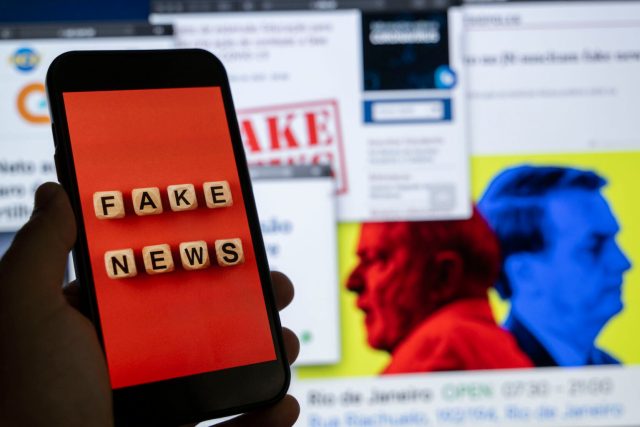
The World Press Freedom Index 2023 of French nongovernmental organization Reporters Without Borders (RSF) evaluates the environment for journalism in 180 countries and territories and highlights the effects the “fake content industry” has on press freedom in the digital ecosystem.
By Dialogo Américas
June 9, 2023
China is among the top offenders, which according to RFS, is the world’s biggest jailer of journalists and a major exporter of propaganda content.
“The massiveness of platforms, the immediacy of information, and the dynamics in the digital ecosystem represent […] one of the greatest challenges for the media, journalism, government, institutions, the economy, academia, and jurisdictions,” Werner Zitzmann, executive director of the Colombian Media Association, told Diálogo on May 28.
According to the press freedom index, released May 5, the development of artificial intelligence (AI) is shaking up the media world that has already been undermined by Web 2.0, which emphasizes user-generated content and greater user collaboration through social networks. AI drives and regurgitates content in the form of syntheses, which flout the principles of rigor and reliability, the report indicates.
“The difference is being blurred between true and false, real and artificial, facts and artifices, jeopardizing the right to information,” RSF said in its report. “The unprecedented ability to tamper with content is used to undermine those who embody quality journalism and weaken journalism itself.”
Through this technology, public figures can be distorted, as shown in a video that circulated on social media in 2022 falsely depicting Ukraine’s President Volodymyr Zelensky, calling on his people to surrender to Russia, The New York Times reported.
“By becoming the new public square for politics, militancy, emotions, ideologies, and causes, they became forums that, as much as they promote opportunities, exchanges, and positive relationships, they also encourage excesses, disregard, disrespect, and abuse,” Zitzmann said.
World ranking
Of the countries included in RSF’s annual report, the situation is “very serious” in 31 countries, “difficult” in 42, “problematic” in 55, and “good” or “satisfactory” in 52 countries. In other words, the environment for journalism is bad in seven out of 10 countries, and satisfactory in only three out of 10, according to the RSF index.
Among the worst-ranked countries are North Korea (180th), China (179th), Iran (177th), Cuba (172nd), Russia (164th), Venezuela (159th), and Nicaragua (158th).
“The problem with disinformation and misinformation is not primarily who generates it but the effect it has on the recipient,” Zitzmann said. Russia’s war crimes in Ukraine account for one of the worst scores, the security indicator shows.
Disinformation is a quick and cheap way to destabilize societies. The U.S. State Department advocates for the truth to disarm disinformation, such as the kind that comes from Russia to sow confusion in its war against Ukraine.
Russian arsenal
The Kremlin created a new media arsenal in record time to propagate its discourse throughout Latin America. Argentina and Brazil are at the peak of pro-Russian war campaigns, U.S. news site Voice of America (VOA) reported on April 26.
Russian-aligned disinformation and fake news that permeate Latin American societies are dominated by conspiracy theories, false military actions, the Ukrainian government’s alleged link to Nazism, as well as content to discredit and ridicule the Ukrainian Armed Forces, VOA reported.
“In Latin America […], negative impacts, fake news, and disinformation, often have even more unfavorable repercussions given the political, socioeconomic, polarization, cultural, and educational situations in the different countries,” Zitzmann said.
And since the truth does not benefit Moscow, Russian intelligence services create, commission, and influence websites, which pose as reliable news outlets to spread lies and sow discord. No topic is off-limits to this super spreader of falsehoods, the U.S. Department said.
Changes implemented by Twitter in April also increased the ability of Russia, China, and Iran to attract new followers and spread lies and misleading claims about Ukraine, U.S. policy, and other issues, VOA reported.
“The challenge today is dissemination tools [such as AI], hence the importance of agreements and self-regulation, and training and pedagogy aimed at target audiences,” VOA reported. “Journalism, the real journalism, around the world is debating, experimenting, and trying to rise to this communication challenge,” Zitzmann added.
“The time to devise solutions is worrisome, because the speed of this outpouring [of information] is already worse than that of the most furious natural phenomenon. What is coming, with faster and more aggressive technology, will be worse,” Zitzmann concluded.
…
Read More: Dialogo Américas – ‘Fake Content Industry’ Threatens Press Freedom Worldwide
…

